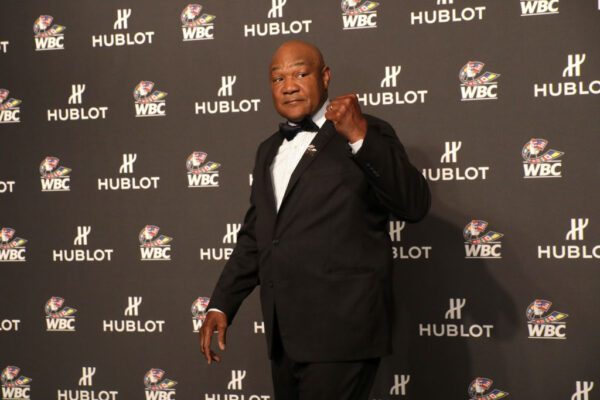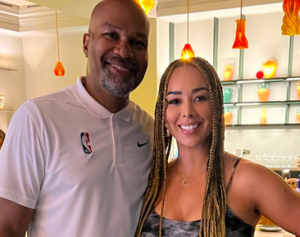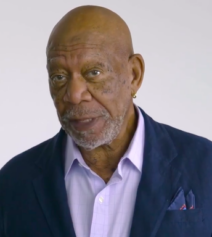In the ’60s and ’70s, toward the end of the civil rights era and after the death of so many of the movement’s most notable leaders, three boxers stood as symbols of power and excellence for Black people: Muhammad Ali, Joe Frazier, and George Foreman.

Foreman, born in a poverty-stricken Fifth Ward in Houston, Texas, in the late ’40s, earned approximately $30 million of his wealth from his boxing career (where he still holds the record as the oldest heavyweight box champion in history) and the other over a quarter million came from the grill that bears his name.
The grill was not his first business deal. One of the couple of times he retired, he dedicated his life to preaching the gospel and invested his money into a few horrible deals that left him nearly destitute. But after getting his ducks in a row, and rebuilding his brand by returning to his love, he was able to parlay the magic of George Foreman’s story into a culinary enterprise.
That one investment changed not only his life but may have been one of the best endorsement deals in sports history, according to CNBC.
Advice from a Beauty Guru
While Muhammad Ali was always considered the pretty one, and the two became fast friends after their legendary “Rumble in the Jungle” bout in 1974, he got his best advice from a white female cosmetics company owner in 1984.
According to Forbes, Foreman says in his autobiography he was sitting at a banquet listening to a speech being delivered by Mary Kay Ash at the Horatio Alger awards. The two were both nominees.
The famous businesswoman said, “My father told me when I was young that if you learn to sell you will never starve.”
He said that hit him hard and stuck with him. He would later endorse everything from Doritos to Meineke mufflers, pain relief over-the-counter meds, Pepsi, and the list goes on. He made a lot of companies money by being hired to promote but did not participate in the wealth he created for them.
One of the Greatest Sports Marketing Deals Ever
Forman signed his deal with Salton Inc. in the mid-1990s, slapping his name on a grill billed to make one healthier while cooking food, creating a “lean, mean, fat-reducing grilling machine.” It was a great story, as he attributed his ability to maintain a four-decade-long boxing career that consisted of 81 contests (losing only six) because he said he ate well and stayed in shape.
His lawyer Sam Perlmutter had a candid conversation with him, saying, “Uh, George, you’re making all these other companies wealthy. Why don’t you get your own product?”
He recalls he originally was not interested until about half a year later, he seriously entertained the offer after his wife tried it and loved it.
The deal also, in his opinion, was not great as he did not receive over 25 years ago an upfront guarantee, only a promise that after expenses, Foreman would get 45 percent of profits. Perlmutter and another partner would in perpetuity only receive 15 percent.
The Comeback and Knockout Check That Changed It All
In 1997, Foreman fought his very last fight in his professional career, duking it out against Shannon Briggs at the age of 48.
Around this time, he not only promoted the fight but promoted the grill. He tapped into what Mary Kay Ash had said years prior.
“When I came back to boxing, I had to sell a middle-aged man who could become heavyweight champion of the world,” says Foreman. “Nobody was buying it. But I kept selling it.”
Briggs would be declared the winner, a devastating blow to Foreman, considering all the work he put in.
By popular opinion, his last fight was a victory despite a controversial decision by two judges giving it to Briggs.
Foreman is said to have returned to his locker room distraught and upset until Perlmutter came into the room with a giant copy of a royalty check for $1 million based on first sales from the grill.
“That was one of the happiest days of my business life,” Foreman said, reflecting on his 48-year-old self. “I lost my last professional boxing match; I’d received a check for $1 million for the grill.”
This changed the game in his mind, and he got serious about knocking this grill out of the park.
“Look, that’s about eight weeks I spent on the George Foreman Lean Mean Fat-Reducing Grilling Machine,” he said in one commercial to promote his new venture. “I grill right in the bedroom. Steak and salmon steak. I was able to lose a lot of weight. That thing really works. Remember, the George Foreman Lean Mean Fat-Reducing Grilling Machine. No home should be without this thing. God bless you. Go get one.”
The next year, Salton sold $200 million worth of grills. Foreman was taking home about 40 percent of the profits.
Easy money, with little marketing needed because of the cash cow name connected to it, the company offered to buy Foreman out of his deal for $137.5 million in cash and stock in 1999. In exchange, they would have the right to use his name in perpetuity and he would never be able to endorse another cookware product. The deal also had him being paid to shoot more commercials and TV appearances for at least $11 million.
With the new deal, he continued to do infomercials, QVC appearances and late-night talk show appearances where he sold the lifestyle change the product afforded its users. The strategy continued to be smoking hot.
And in 2014, he said to AARP, he made more than $200 million, sometimes earning $8.5 million a month. He still receives wealth from the company as a stock owner.
The Exception to the Rule
Foreman is exceptional, not only because he has made over a quarter billion through smartly tapping into his brand. But because he was able to translate the discipline of being an athlete into his understanding of wealth management.
In 2022, Craig Brown, an NKSFB Sports Business Division partner, told Fox Business 78 percent of all athletes go broke after three years of retirement. He said a lot of that has to do with receiving so much money in such a short time and the “overwhelming feeling” connected to that sudden windfall in the bank.
“You oftentimes see these professional athletes looking to help out family members, to help out people who are close to them as they were growing up, which causes them to, a lot of times, instead of maybe building their own foundation and creating a solid position for themselves in the future, to try and help everyone else along the way,” Brown shared.
Business aside, Foreman is not without scandal. TMZ reports two women have come forward with a lawsuit saying he sexually abused them, saying the assault dated back to the 1970s at the height of his boxing career.
The 73-year-old denies these claims. In a statement, he said, “Over the past six months, two women have been trying to extort millions of dollars each from me and my family. They are falsely claiming that I sexually abused them over 45 years ago in the 1970s.”
“I adamantly and categorically deny these allegations. The pride I take in my reputation means as much to me as my sports accomplishments, and I will not be intimidated by baseless threats and lies.”
The women are allegedly a part of “a coordinated extortion plot” where they are both asking for $12.5 million.
“I am, and always will be, guided by my faith and trust in God,” he said in the statement. “I will work with my lawyers to fully and truthfully expose my accusers’ scheme and defend myself in court. I don’t pick fights, but I don’t run away from them either.”




